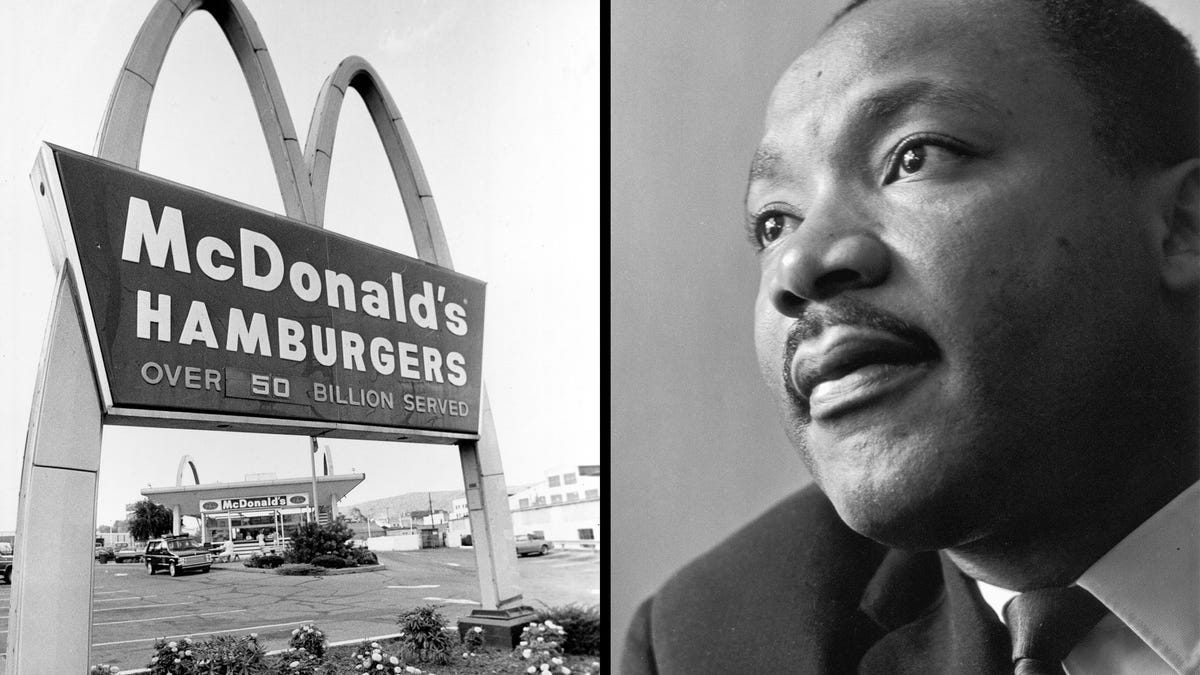Fast Food and Civil Rights: The Surprising History of McDonald’s in Black America

Joyzel Acevedo
Filed to:FRANCHISE: THE GOLDEN ARCHES IN BLACK AMERICA
In Jezebel’s newest series Rummaging Through the Attic, we interview nonfiction authors whose books explore fascinating moments, characters, and stories in history. For this episode we spoke with Marcia Chatelain, author of Franchise: The Golden Arches in Black America, a nonfiction work that uncovers the historical relationship between McDonald’s and the fight for civil rights in America.
In early June of this year, the McDonald’s Corporation posted a short video on Twitter that listed the names of several Black victims of police brutality and culminated in the statement, “Black lives matter.” It was introduced with the words, “They were one of us.” Companies engaging in activism as an attempt to seem more in-line with their consumer base than they perhaps actually are isn’t anything new. But what many don’t know about McDonald’s specifically is that its ties to Black communities—whether problematic or beneficial—can be dated all the way back to the Civil Rights Movement of the 1960s.
Speaking on the white flight phenomenon of the ’50s and ’60s, professor Marcia Chatelain says, “When people think about white flight in America, they often think of housing ... But people often don’t think about economic white flight, and that is the process in which white business owners close their businesses in predominantly black neighborhoods and move to the suburbs. Therefore, taking with them jobs and important tax revenue.” One response to this was to invest in the idea of Black capitalism. “Black capitalism is the ideology that if African-Americans build businesses and their wealth, they will be able to leverage their power for political and social equality.” As white McDonald’s franchise owners closed up shop, McDonald’s looked to members of the Black community to take over those locations, as well as open new ones.
The venture was incredibly successful, resulting in the creation of the National Black McDonald’s Operators Association and, at one point, in McDonald’s being the largest employer of young Black Americans in the country. The success, however, was not without its criticism. “There were some people who were really discerning, who said we can’t become liberated just because we participate in capitalism,” says Chatelain. Most recently, Black McDonald’s operators have reported financial disparities and a lack of equal opportunity between them and their white counterparts. “Capitalism makes every relationship we have complicated, and it challenges us to remember that corporations will never deliver freedom—that people will deliver freedom for ourselves.”
In Franchise, the rise of Black McDonald’s operators is just one part of the relationship between McDonald’s and Black America. “I not only look at McDonald’s as a business in Black neighborhoods,” Chatelain says, “but I also look at the cultural work of McDonald’s, whether it’s sponsoring Martin Luther King, Jr. holiday content, or sponsoring the American Double Dutch League, or developing products that they believed would attract African-American diners.” Chatelain explains how McDonald’s and its Black franchisee owners were pivotal in creating the template on how to market to African-Americans. “The ways that the Popeye’s Chicken Sandwich was advertised using Black vernacular and slang, McDonald’s was doing very similar stuff in the 1970s.”
When asked what a follow-up to Franchise would be called, Chatelain paused. “Does the Hamburglar Really Believe That Black Lives Matter? An Analysis of Fast Food Companies in the Age of George Floyd.”
VIDEO
No comments:
Post a Comment